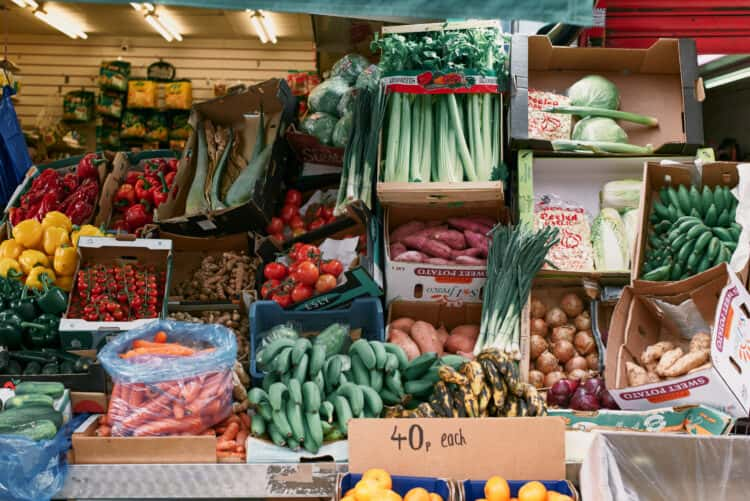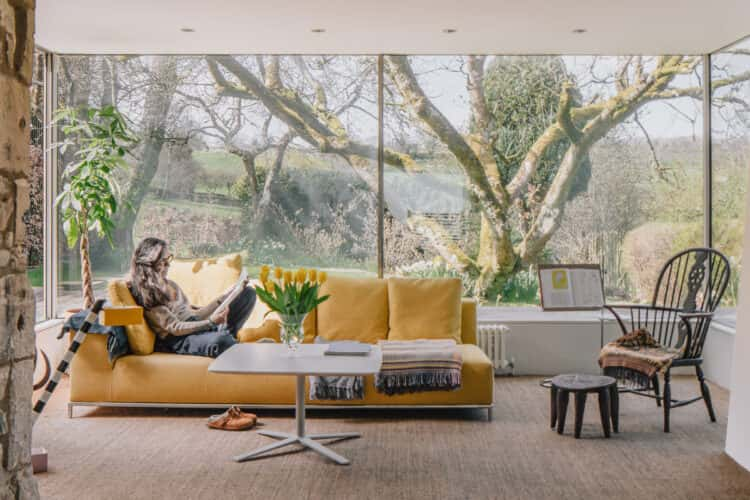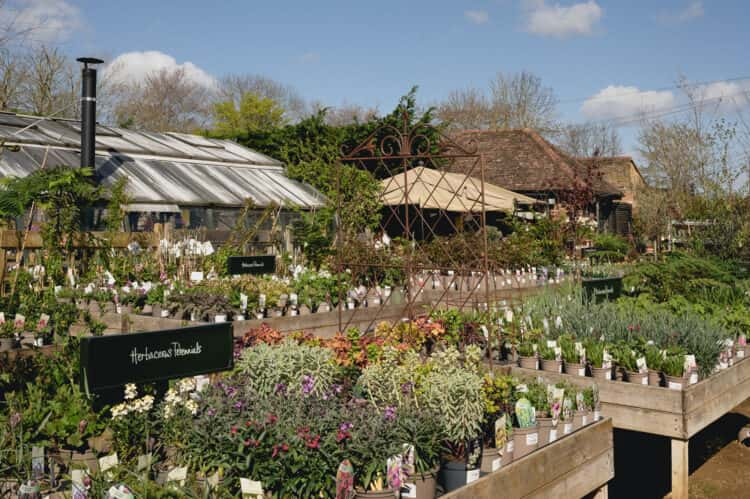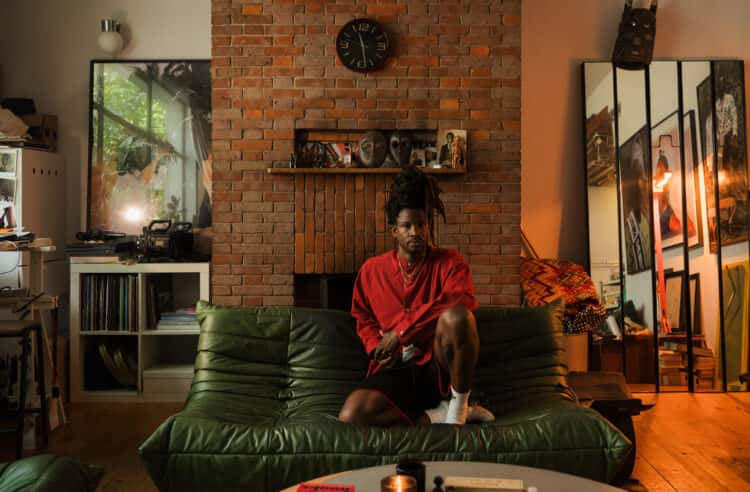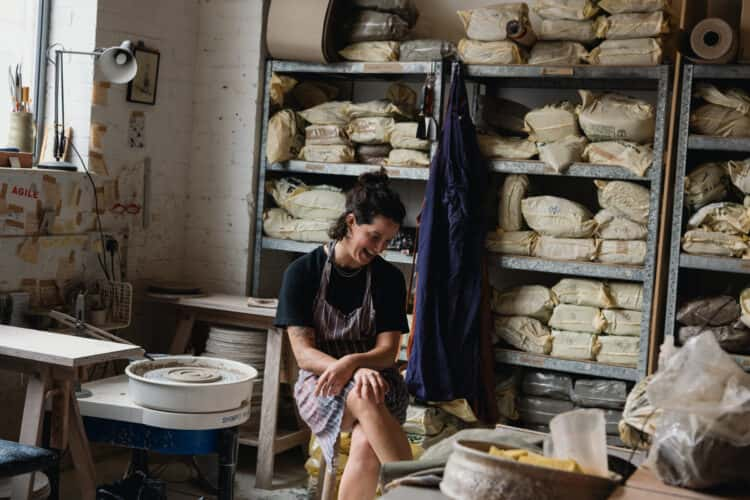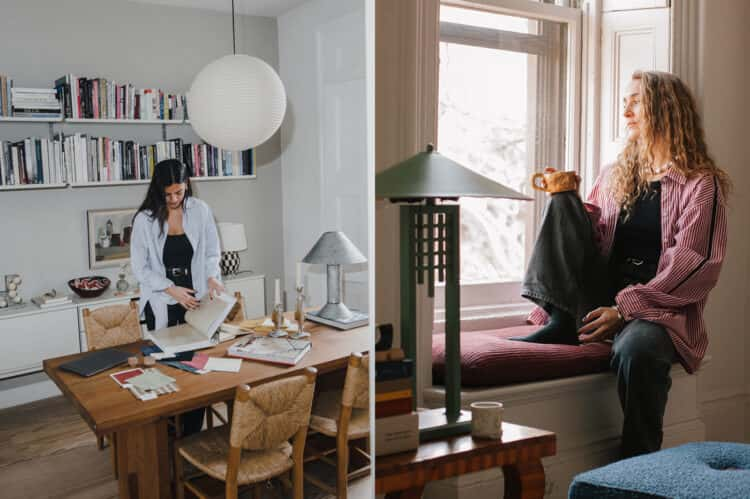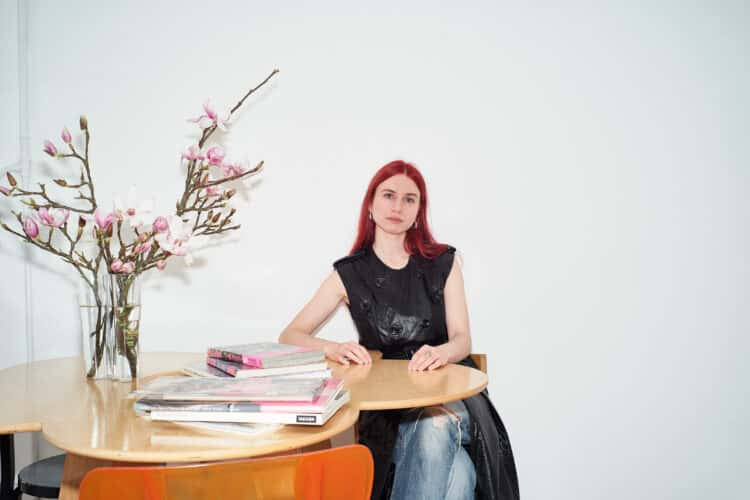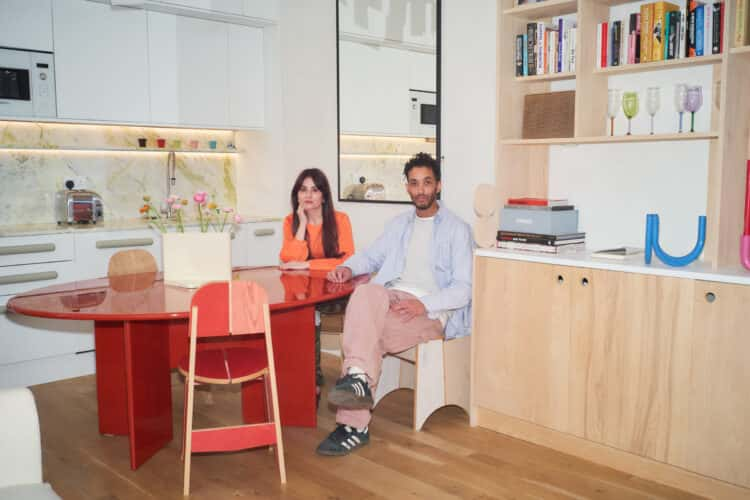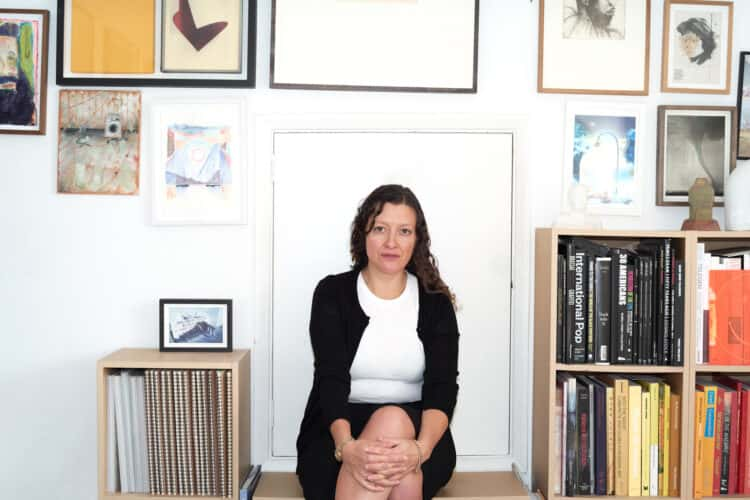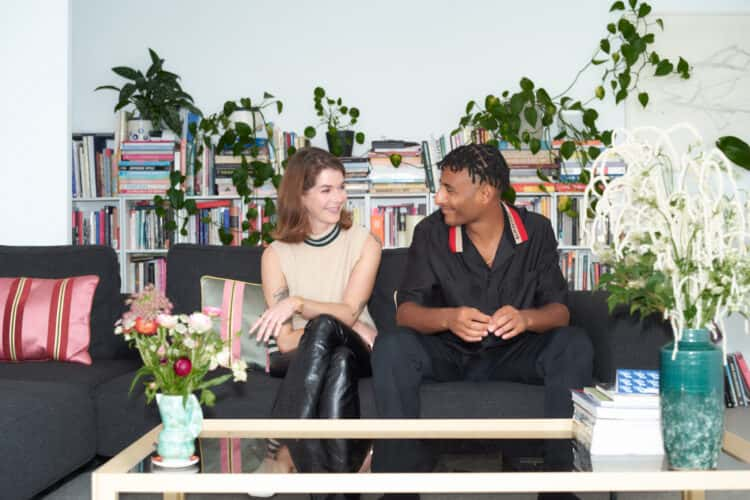A Day Well Spent with Rahel Stephanie
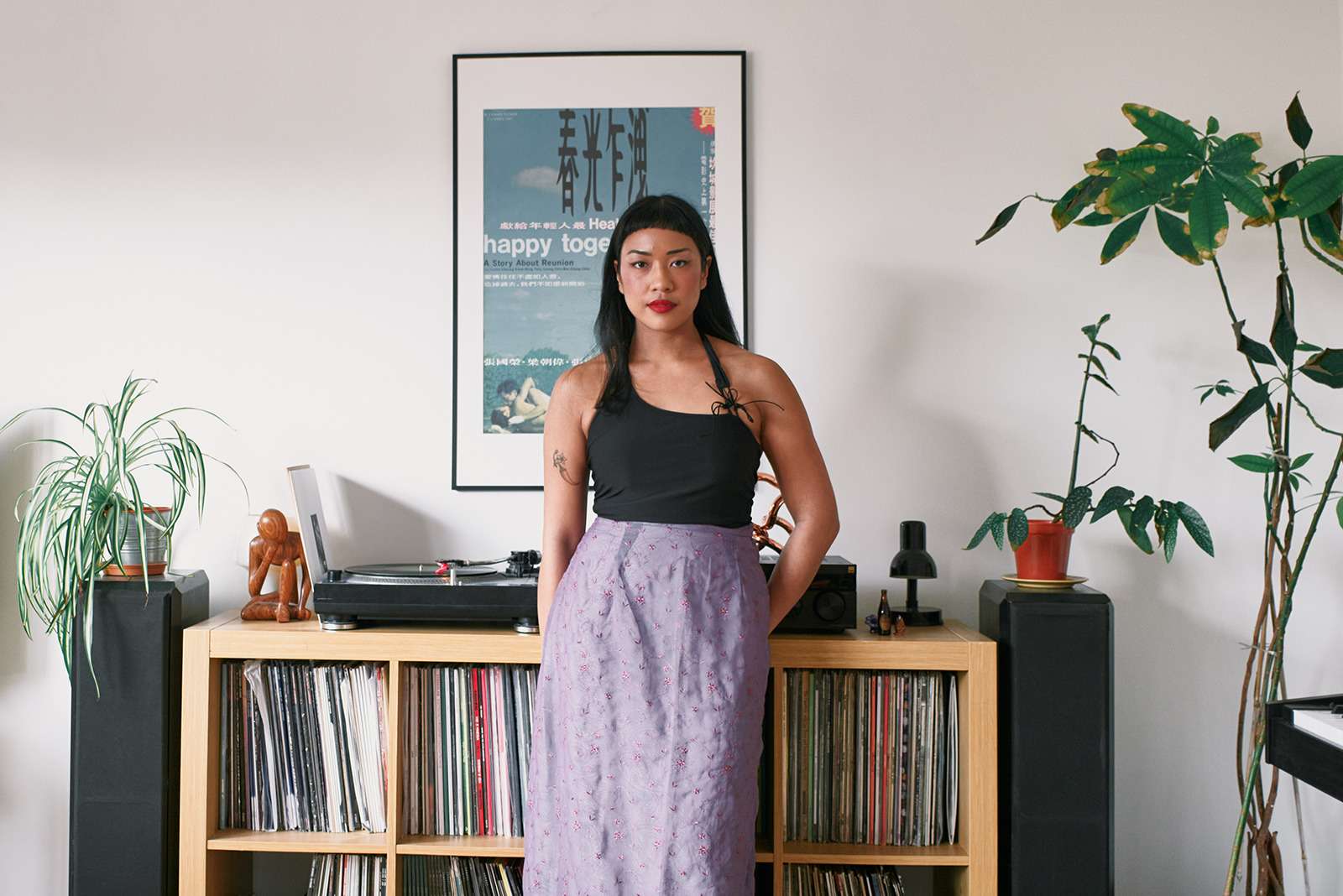
Words Billie Brand
Photography Kane Hulse
As the founder of plant-based supper club Spoons, introducing people to the fruits of her homeland is nothing new for Rahel. Having moved to London to study fashion business in 2013, she noticed a lack of authentic Indonesian food across the capital. Cravings for her native dishes meant she had to learn how to make the ones she missed the most herself, with the help of “Indonesian housewives and aunties” on YouTube. “I owe them everything,” she says. Having developed a knack for cooking, Rahel established Spoons – named after the preferred utensil for eating in Indonesia – as a “side hustle” in 2019. Before long, it became her full-time venture when the pandemic provided her with a fruitful furlough period. Fast-forward to now and Spoons is thriving: tickets its events sell like hot cakes. “They go in minutes,” she smiles. “People set alarms for them.”
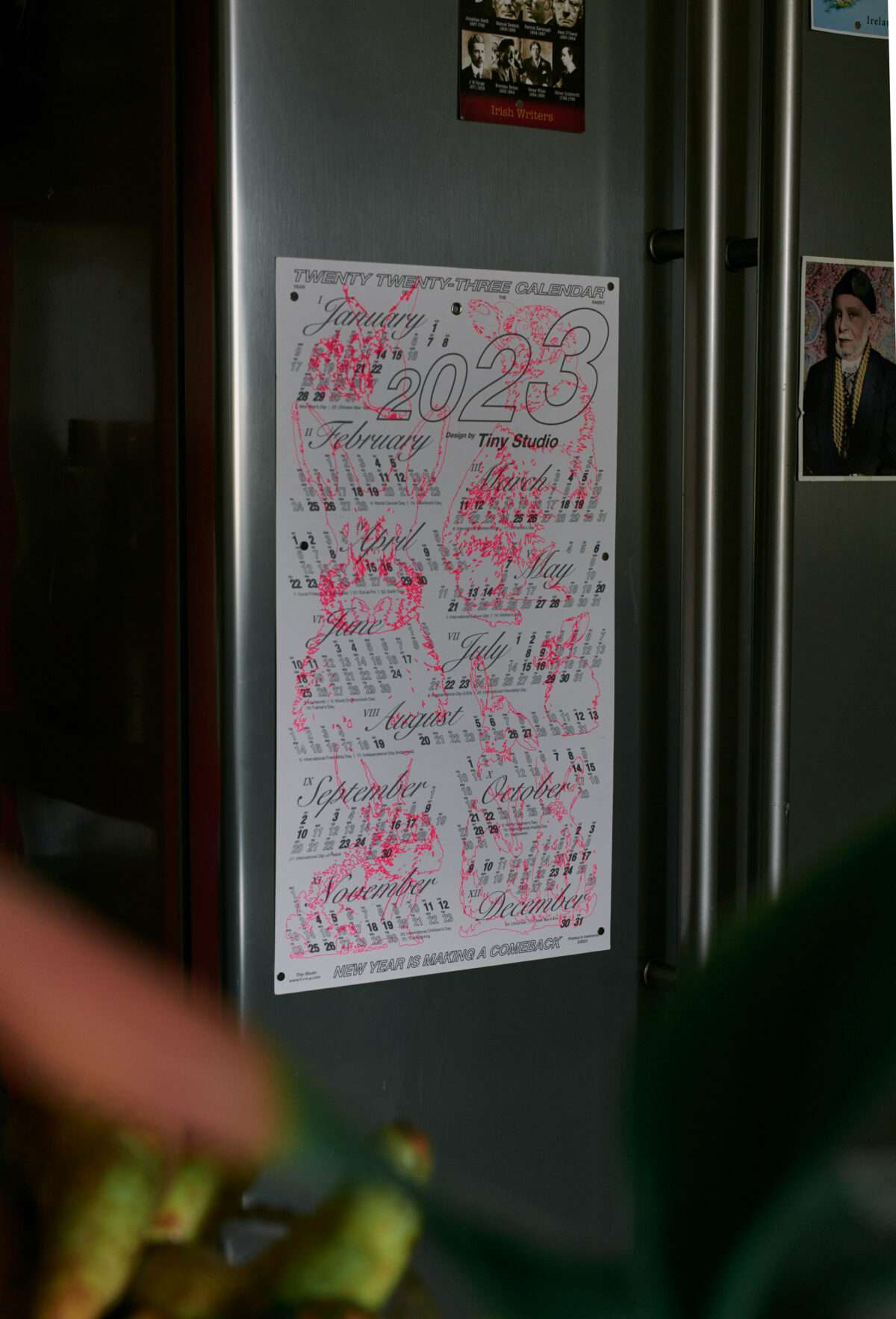
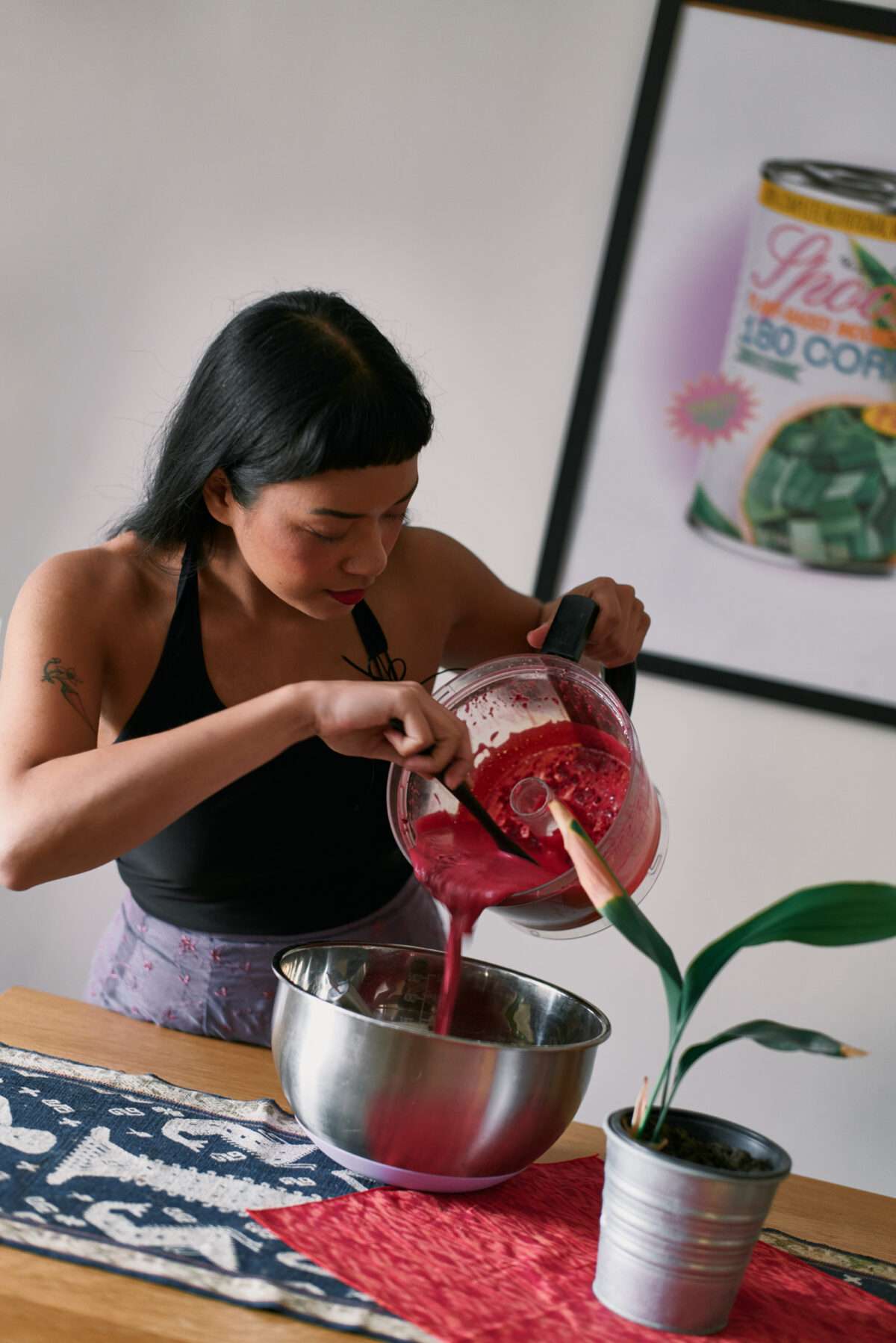
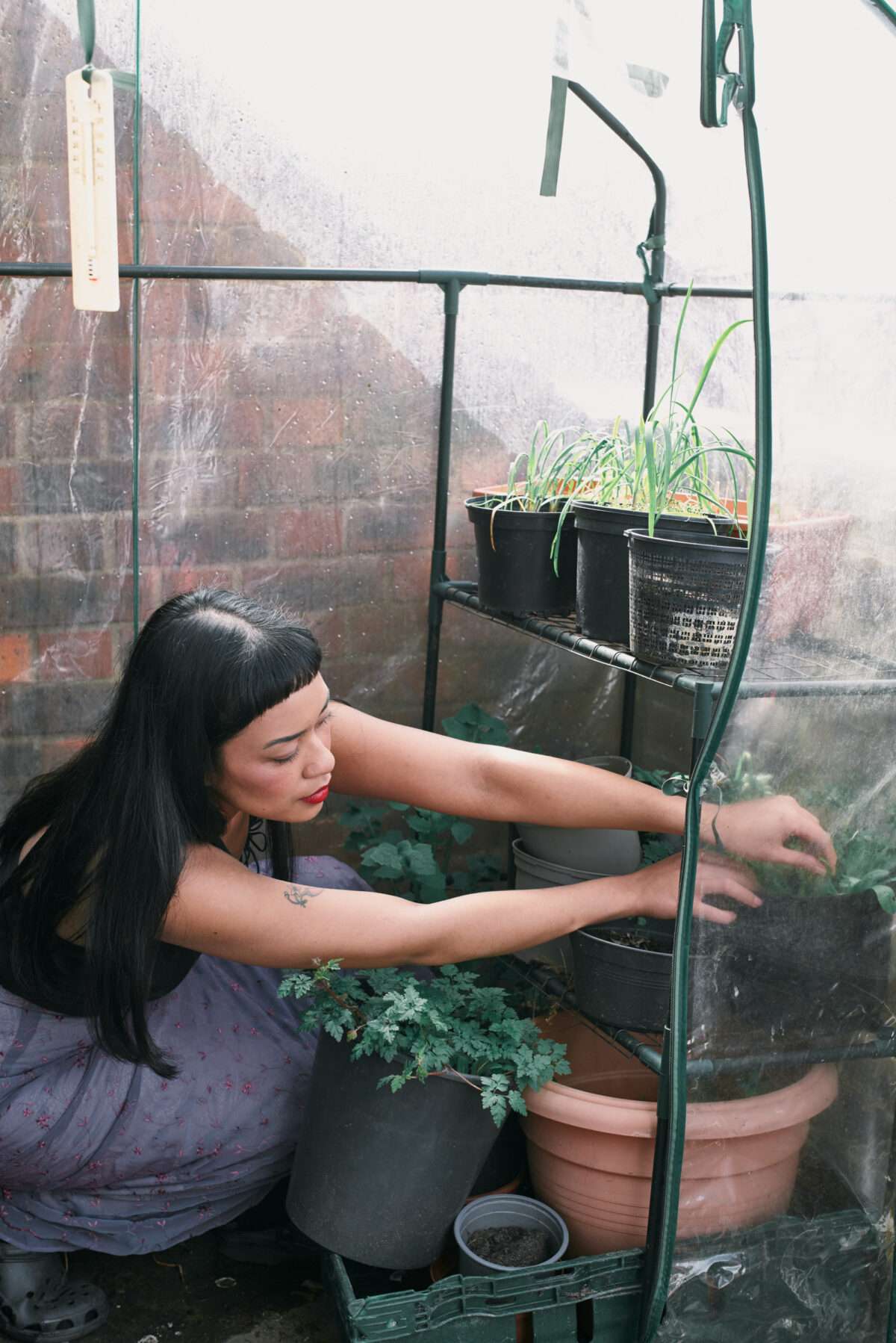
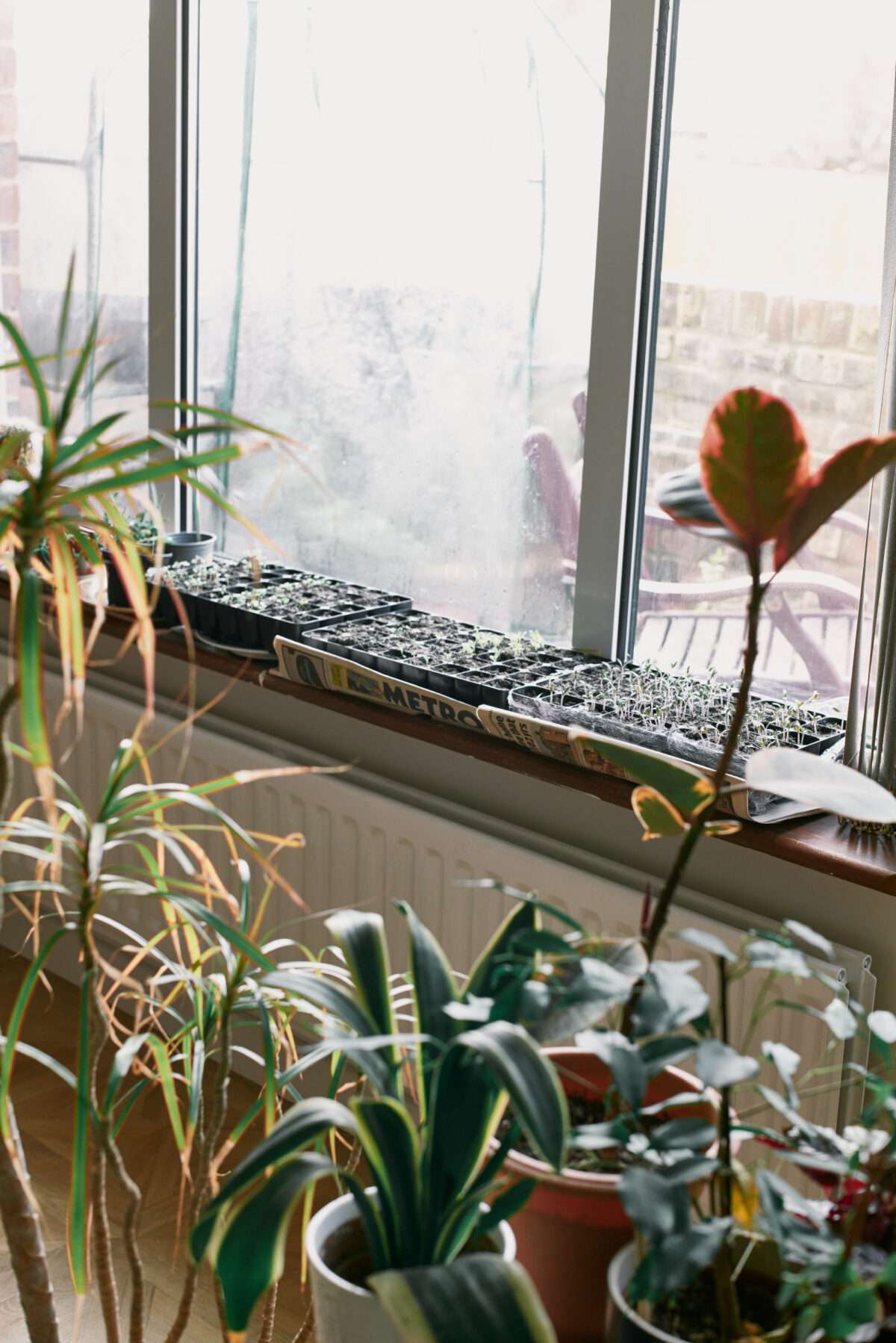
Rahel loves the way supper clubs offer chefs from underrepresented communities the chance to cook food they can’t find so easily here. Her friend at Swilipino, for instance, serves Swedish-Filipino food, as a nod to her dual heritage. As Rahel asks: “Where are you going to find that on the high street?” Budding chefs with bright ideas and one-night-only menus are enhancing the “vibrancy of the food scene”, she continues. “And running one is a lot more accessible than setting up a restaurant.” Rahel might have no interest in launching a permanent establishment any time soon, but you can catch her cooking on TV (she’s a regular on Channel 4’s Sunday Brunch), as well as at one of her dinner parties – but remember: you’ll have to act quick.
Congratulations on the success of Spoons. How are things going for you?
The past year has been insane. Spoons first spread by word of mouth, which is a powerful tool – especially within communities you trust. During the first lockdown, I ran a four-week fundraiser for the NHS, making lunchboxes that I’d deliver around Hackney, where I was then living. At the same time, I was put on furlough from my office job. I thought: “Fuck it. I’m going to cook full-time.” It has been non-stop ever since and I’ve been blessed with a lot of cool opportunities.
Why do you think Spoons resonates with people?
First and foremost, there isn’t much Indonesian cuisine in London. There are only two places that I regularly go to: Pinos Warung in Camden and Triple Hot Spicy in Queensway. That one is in a shopping centre, which really reminds me of being in Indonesia. The best thing about Spoons is knowing people relate to what I’m saying. It makes me feel less alone. I have made so many new friendships through it.
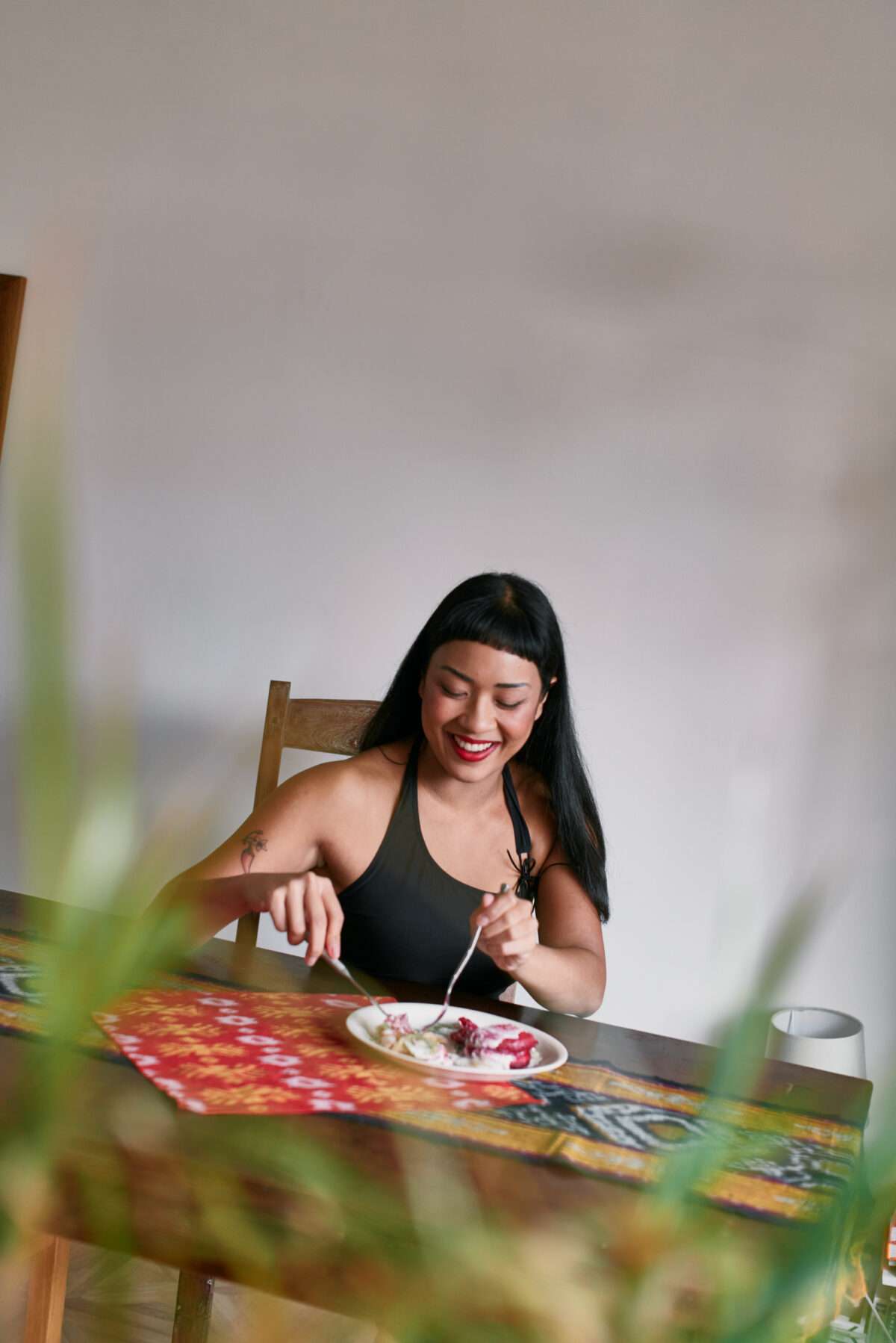
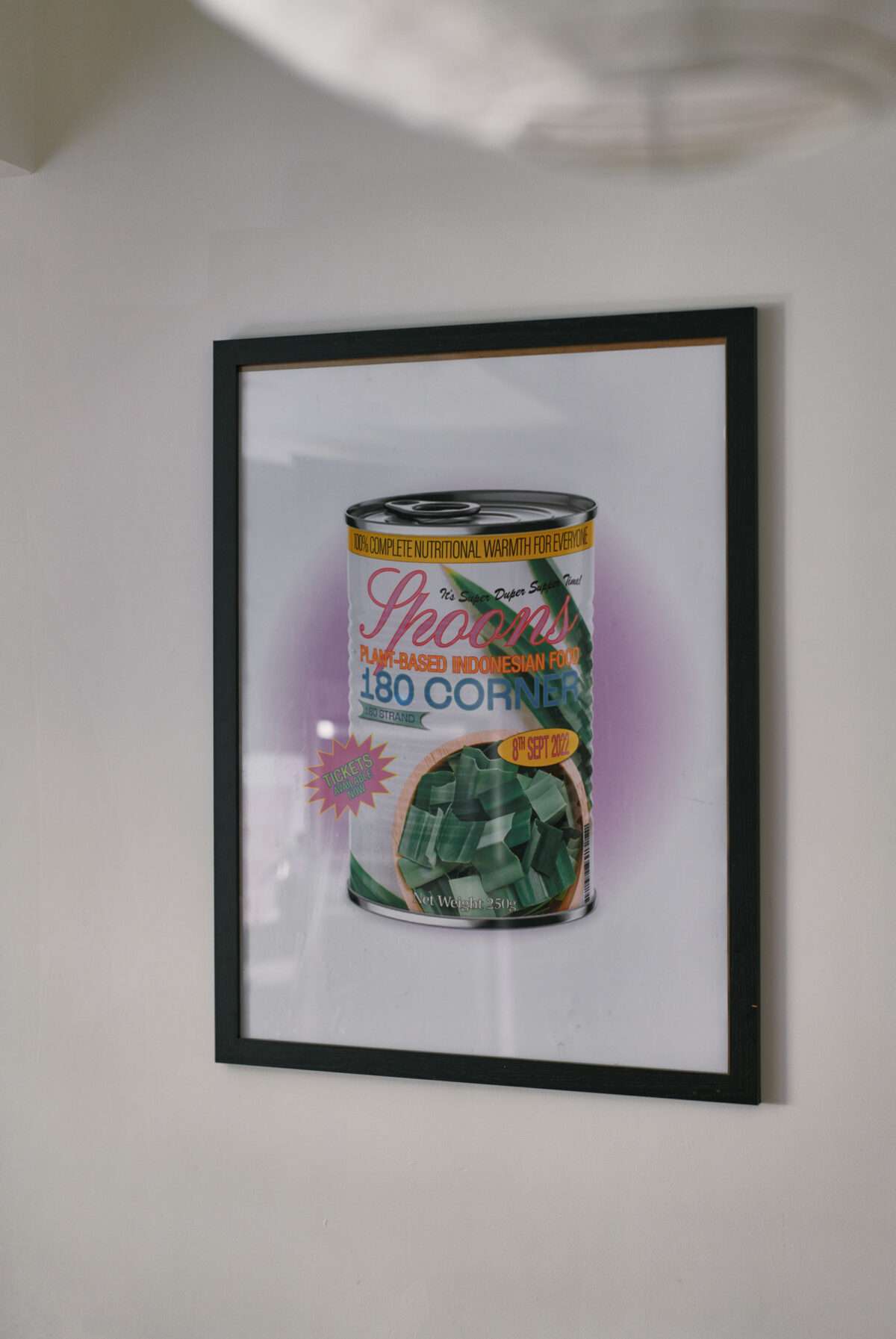
How would you describe the Spoons clientele?
It’s East and South-East Asian girlies – and it’s the best. I feel so grateful; these people mean everything to me. It always feels like I’m throwing an extended family dinner.
What makes a supper club a triumph?
When everyone is having a good time and making new friends. That’s what sets supper clubs apart from restaurants. But the reason I do it is to spread awareness about my culture and heritage. I try to do that through social media and physically on my menus. Spoons is not just about cooking. The dishes are very personal – they’re a representation of so much more.
You moved to Brockley two years ago and more recently to Forest Hill. How are you enjoying south-east London?
I’m loving it so far. My partner and I had been in Hackney for eight years. I did the rounds: London Fields, Homerton, Victoria Park, Lower Clapton… I’ve seen it all! But we wanted to live somewhere a bit calmer. It was getting impossible to leave the house and not bump into people we knew.
Tell us about your home.
The kitchen is much bigger than the one in my previous flat. It was tiny! I lost touch with cooking for fun over the past year or two, which I thought was because it was my job, but I’ve discovered the romance of experimenting at home again since moving here. This kitchen was lime green when we moved in, but I’ve painted it white and added pink tiles. We sourced the island from Gumtree – that’s been on my wish list for a long time. We also have a balcony that gets a lot of sun and is home to our greenhouse; we’re growing tomatoes, lemon basil and Chinese celery, as well as Indonesian herbs you can’t easily find in London.
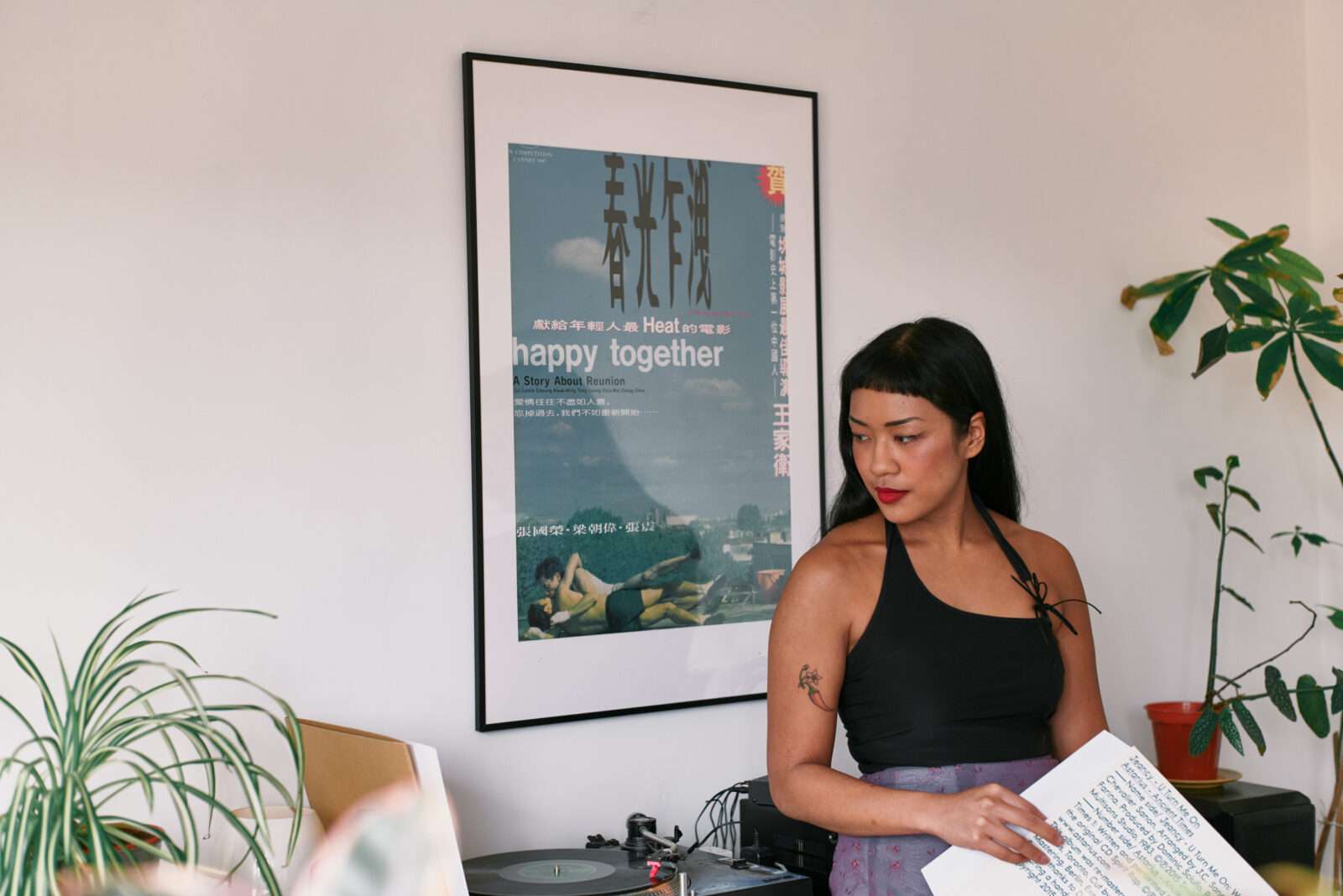
What’s the kitchen appliance you couldn’t live without?
My food processor. The base of most Indonesian dishes is bumbu, which means spice paste. To make it traditionally, you’d use a pestle and mortar – which I also use a lot – but I use the processor to make big batches to keep in my fridge.
What does a morning in the life of a supper-club host like look?
Since going freelance, I have been enjoying the privilege of a lazy morning. My partner will bring me coffee and my laptop and I answer emails from bed. It’s fucking great. And I love a sweet breakfast. If I’m in the mood to cook something special, I’ll make beetroot pancakes. I might listen to NTS’ morning show, or I’ll play some records.
When did you first fall in love with food?
There’s no cliché – I didn’t watch my mother cook from a young age. But I’ve always loved food. It’s become something I really appreciate since moving here because I have had to replicate the food from home. The earliest food memory I have, however, is watching a TV chef called Sisca Soewitomo. She is the OG Indonesian food auntie. I would watch her show while having my weekly allowance of Indomie instant noodles. That combination was bliss to a six-year-old me.
We’d love to learn a bit more about the environment you grew up in.
I was born in Jakarta and moved to Singapore at the age of nine with my mother and my younger sister, Becky – she’s my soulmate. It was always us three. In Singapore, we lived in a small flat but we were always jumping back and forth to Jakarta. London is actually my first experience of consistency. I’m most familiar with this city geographically. But I have always longed for Indonesia. I never properly adapted to Singapore and even though it was close, it didn’t have Indonesian cuisine. Every time we’d go back to Jakarta, we’d fill our luggage to the brim with dry ingredients.
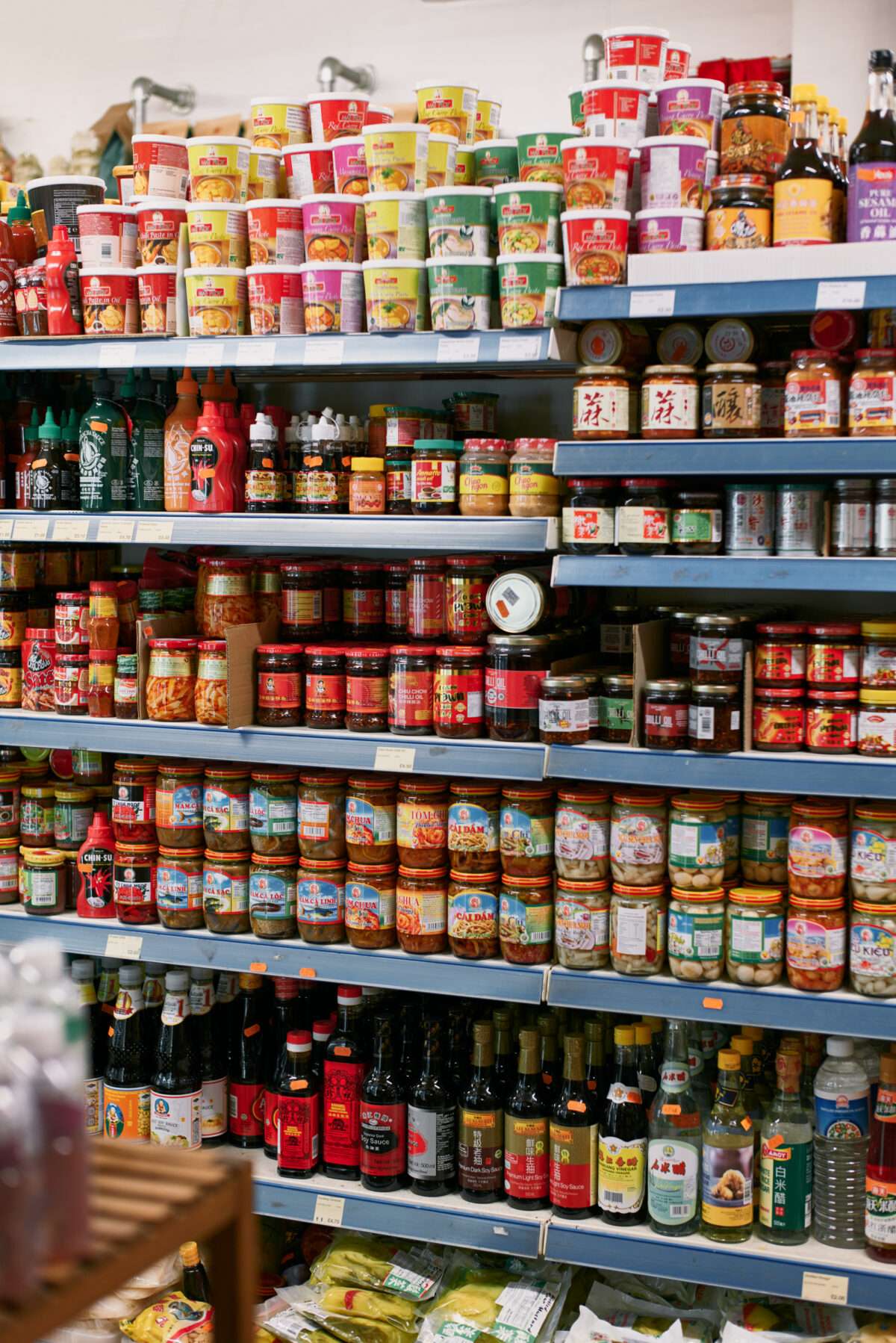
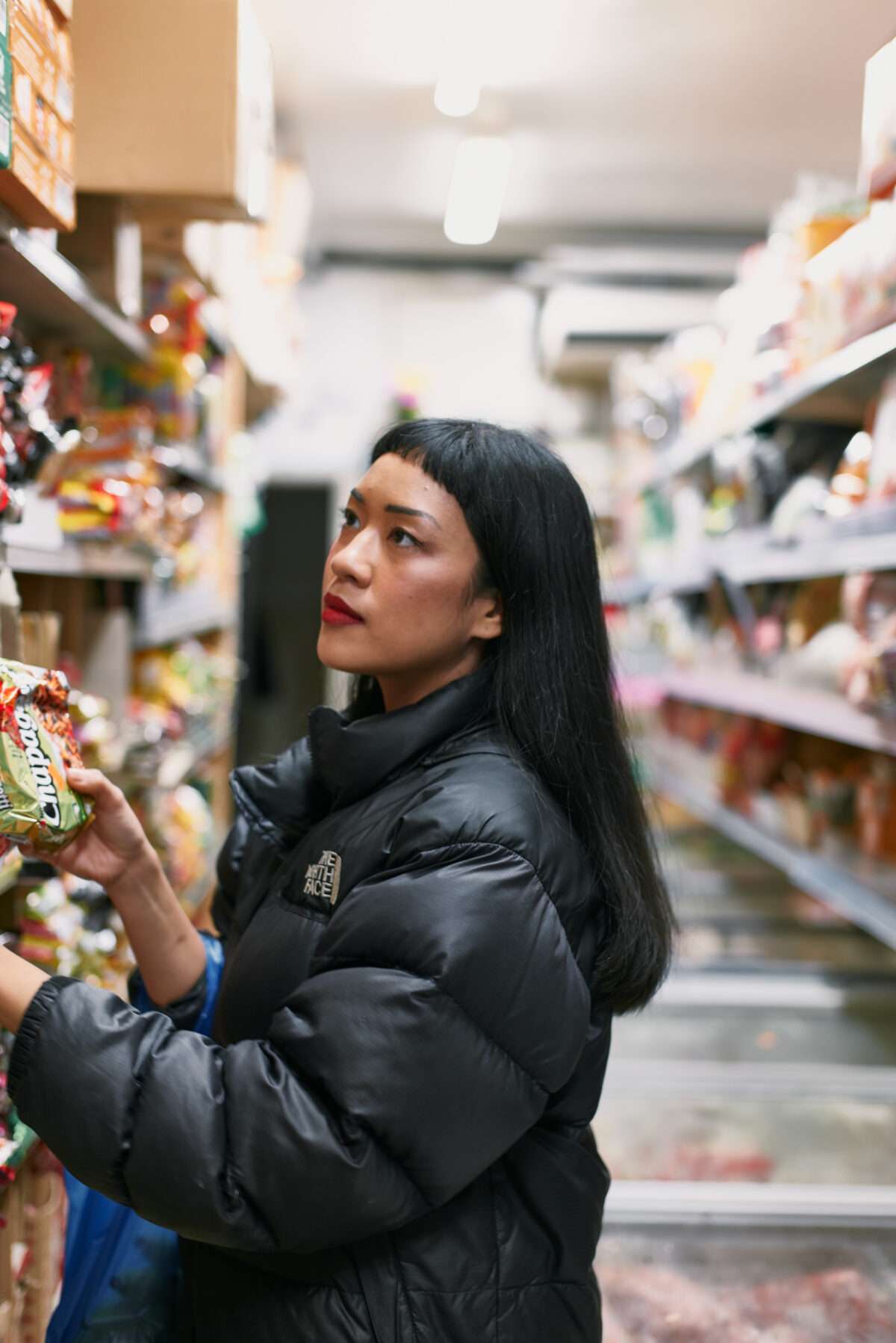
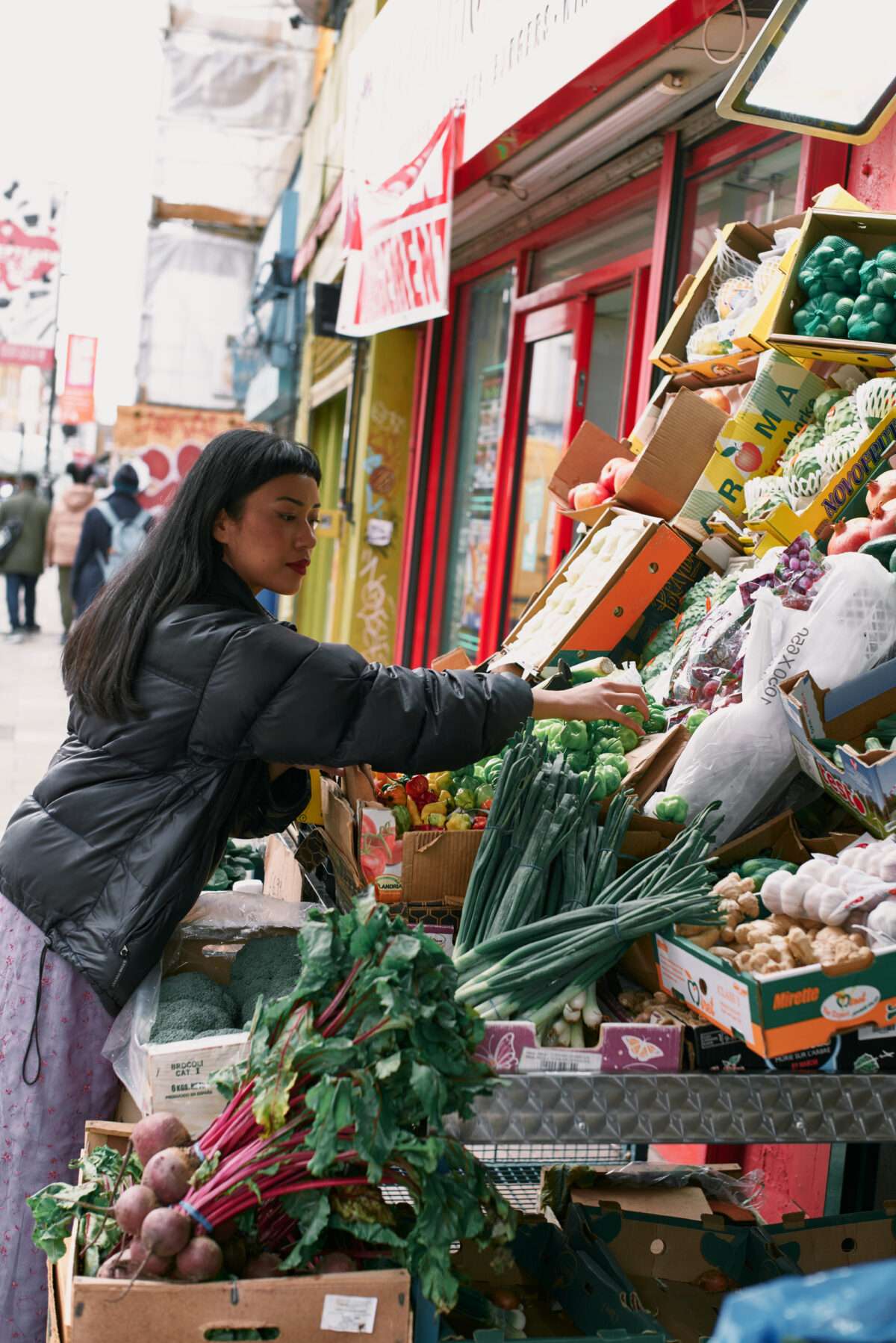
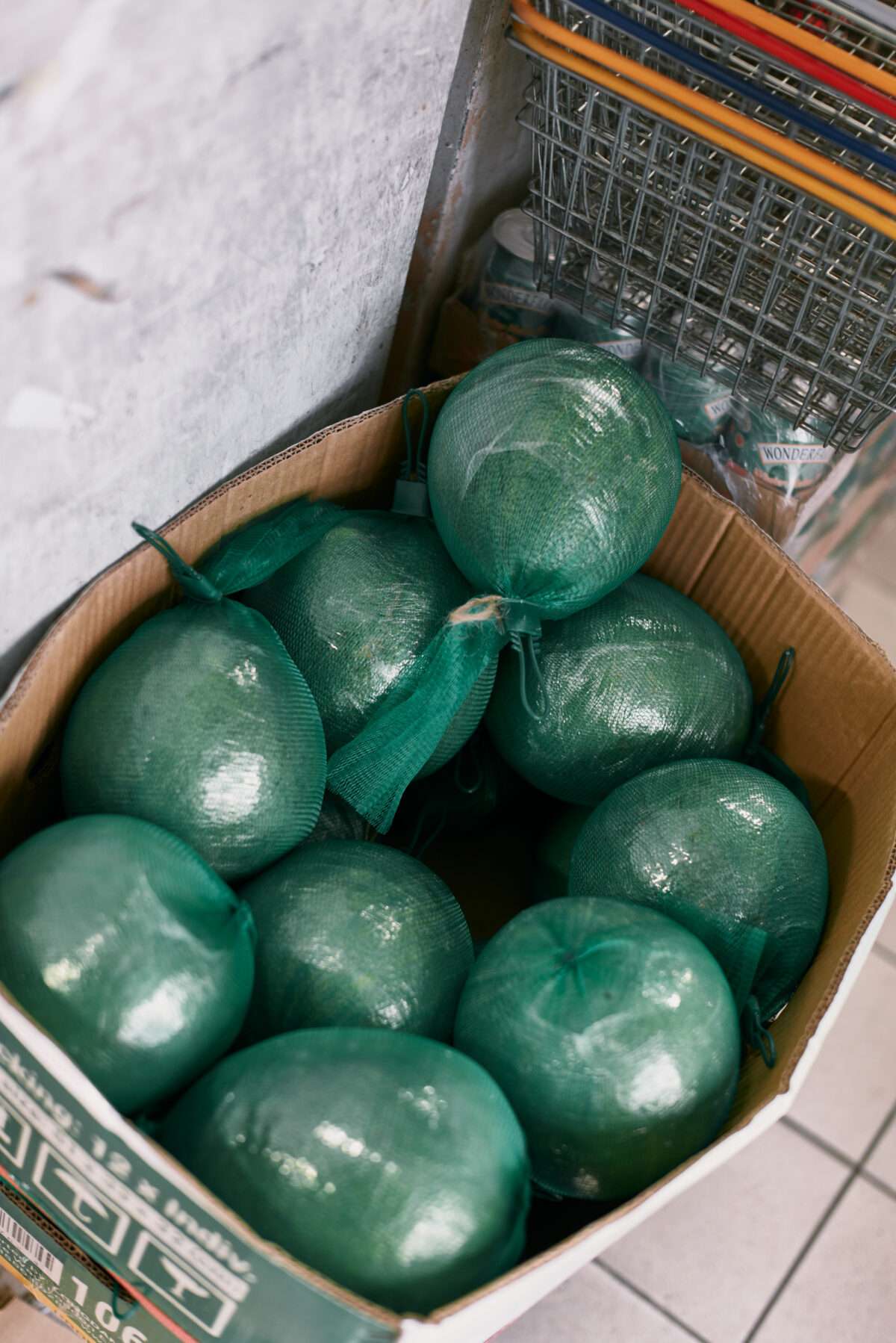
What do you think are the biggest misconceptions about Indonesian food?
There are a lot, which I think is because it’s not as established in London as other Asian cuisines. For instance, it irks me that people don’t know that tempeh is Indonesian. It’s sold in organic shops and middle-class vegan restaurants as a meat substitute. People are missing the awareness of its origins: it was poverty food. It was created when people couldn’t afford meat as a source of protein. It’s important to be aware of that when you’re buying it from a place of privilege like the UK.
What are some of the things you miss most about Indonesia?
The first thing that comes to mind is food being a part of nightlife. In Indonesia, the streets are overflowing with options 24/7: rice porridge, noodles, curry, thick pancakes… In fact, I miss that food is intertwined with all our activities. Even when you’re at a salon, the hairdresser will ask: “Can I get you something to eat?” They will then walk out to the street-food vendor and bring back your dish of choice.
What’s your signature dish?
I love experimenting with desserts – I have such a sweet tooth – but my signature would have to be pandan berry blondie’s. It was an accidental creation I made with a big bucketful of blackberries that I foraged around Hackney. I had some other ingredients in the cupboards and mixed everything together… I’ve never had anything like it anywhere else. It’s an extremely special recipe.
What’s the best way to spend an afternoon in your local area?
I love walking or cycling and shopping for groceries, which I find so therapeutic. I could spend hours walking around the Asian supermarket by myself with no aim. Lai Loi in Deptford is one of my favourite places. I also love the fruit and veg markets there. Obviously, it has pockets of gentrification, but Deptford has retained a very authentic local community, which I think is beautiful.
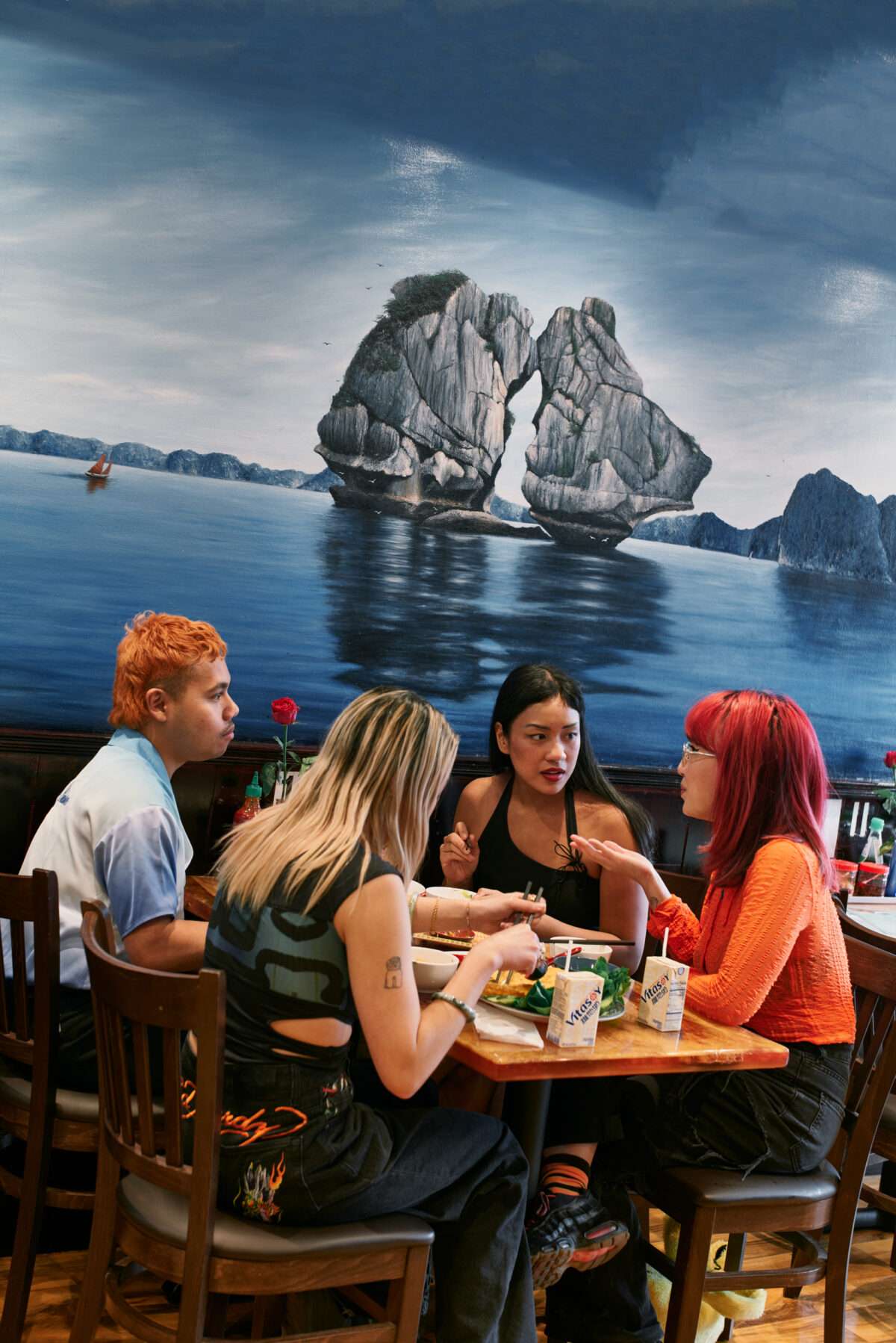
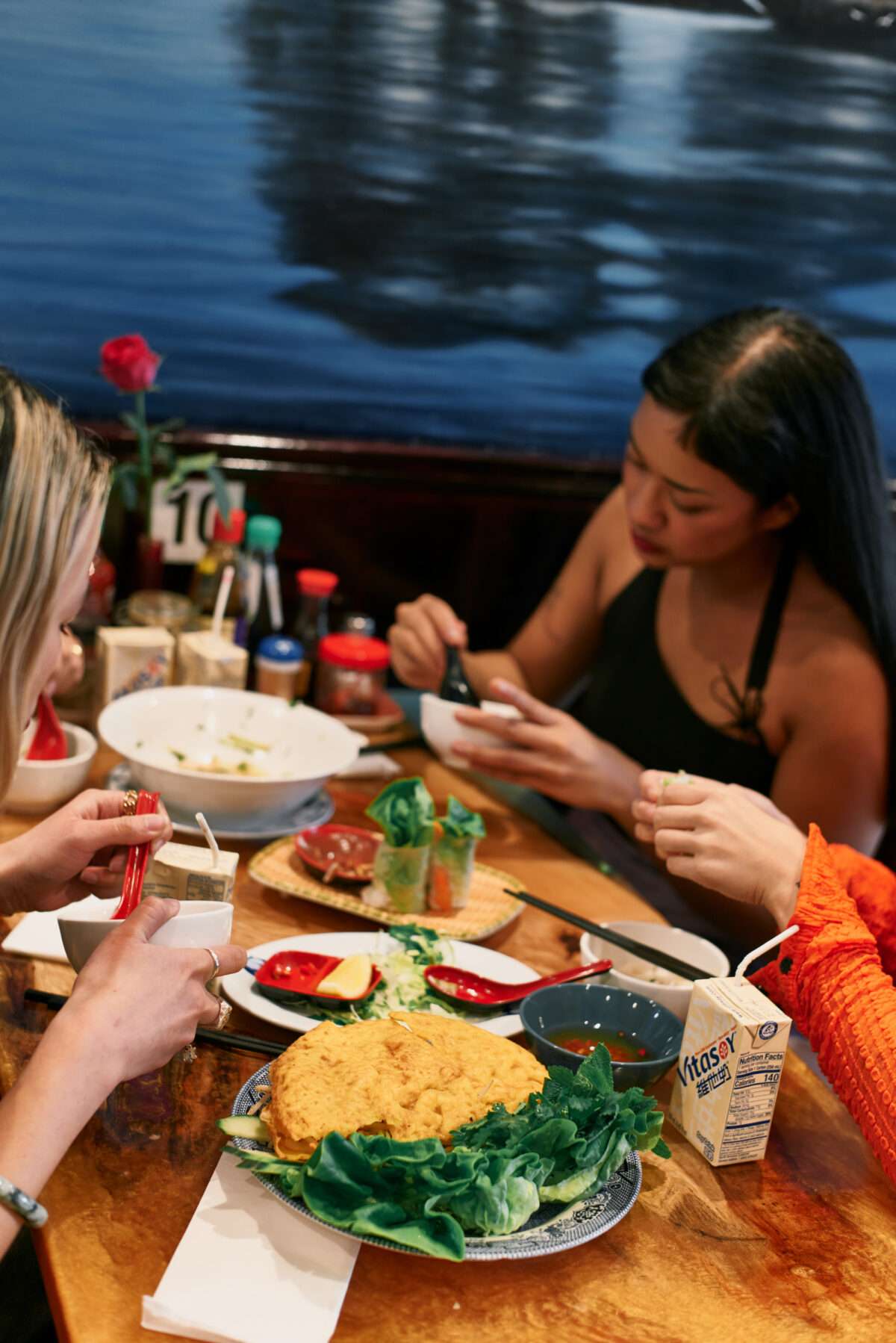
Where are some of your most frequented local restaurants?
I love Everest Curry King, which is a no-frills Sri Lankan canteen between Brockley and Lewisham. Another great place is Malaysian Deli in Crofton Park. It’s BYOB, so I get wine from Salthouse Bottles to take with me. In Peckham, there’s a place called Tianjin Dumpling, which arguably serves the best dumplings in south-east London. And Viet Rest in Deptford. I always order the fish soup there – it’s not on the menu, but if your order it, they’ll make it. My favourite thing to do – period – is eat with the people I love.
Who would you invite to your dream dinner party?
Rihanna, Sisca Soewitomo and my sister.
Is there a home for sale of The Modern House that has caught your eye recently?
Wheatleys Eyot II looks so beautiful. I’ve always dreamed of a place with a kitchen that gets lots of natural light.
